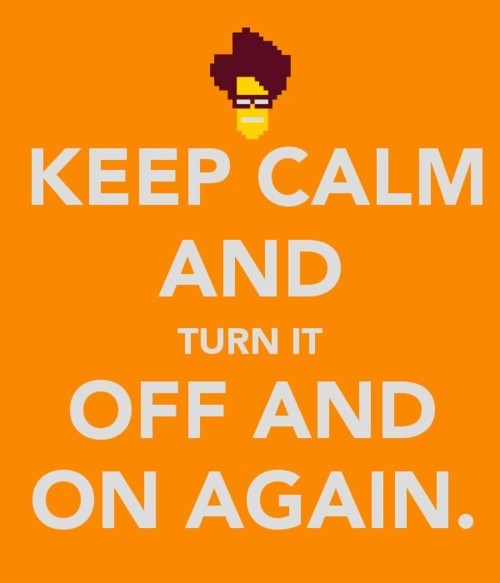
I’m using the picture above this mostly because I think it’s really funny, but I guess I could take advantage of it as an introduction to talking about British comedy and the plays I’ve been seeing so far here.
For anyone who doesn’t know, the program I’m on focuses on two subjects — London Theatre and Regency London. The plays that we’ve seen so far are the Master Builder, Fela, an pantomime called Jack and the Beanstalk, and a French farce called A Flea in Her Ear.
The British comedy I’ve been exposed to ranges from Monty Python to Shakespeare to Spaced and the Blood and Ice Cream trilogy to Jane Austen to Catherine Tate’s Lauren Cooper sketches (and, of course, the IT Crowd). While Fela — a musical about the Nigerian afrobeat artist Fela Kuti — was pretty much in line with musicals I’ve seen in the states, I’ve definitely learned a little bit more about WHAT TICKLES THE FUNNY BONES in England.
Last Friday we went to an English pantomime, which was, in a word, an experience. One conception that I’ve always had about the UK is that it’s a rather tight knit culture. I suppose that in the US we have our celebrities and our pop culture references that we like to reference, but I always thought I had a pretty good grasp on aspects of both American and English news and pop culture. The panto definitely disabused me of this notion.
I managed to get several references to the Ashes that England recently won from Australia in cricket, Doctor Who (though that one was not very difficult to get), Eastenders, and X Factor, but I’m sure that the rest of the play was riddled with small references that completely went over my head. I may or may not have laughed at a not very well placed reference to the Catherine Tate Show just because I understood it. But what the panto did convince me of is that there is definitely a different set of jokes here. Even though we both speak English, we definitely don’t speak the same language.
What’s been particularly interesting language-wise is seeing what differences English people notice in the language. I know that we think of distinct lexical differences like loo vs bathroom and lift vs elevator, but there are millions more that no one ever bothers to explain. I remember being here a couple of years ago and dealing with one such miscommunication — the word “pumps” to me meant high-heeled shoes, whereas my English friend used it to refer to ballet flats. This trip has only revealed more differences — a Westminster Abbey employee poked fun at Americans for saying “sidewalk” (he exaggerated the “ah”) rather than “pavement” and then exclaimed that it was “awesome! Oh my God!” I walked away from that exchange mentally kicking myself for saying “awesome” so much in public.
We have met some others who made fun of us in a less good-natured way. One man followed a group through the tube station repeating the phrase, “Land of the trees and home of the brave!” and when I told another weird guy on the street that we were Canadian so he would stop bothering us, he commented that on the map it looks a bit like Canada is “buggering” the US. Charming.
When I’m not travelling in a giant group of students, though, it’s less likely to be targeted by random passersby and easier to blend in, and that’s when I’ve really felt like I like this city. I’ve even been using a bit of English intonation when I only have to interact with someone for a few words — mumbled “pleases” and “thank yous.” I’m starting to feel much more comfortable getting around — public transportation is no longer a mystery to me, and I know the way to the Sainsbury’s nearby. There are the occasional surprises, like when I went on a walk over the weekend and found myself at the river when I thought I was walking completely in the other direction. Overall, though, London is starting to feel like a place that I’ll be happy spending a couple months.
This may seem pretentious or whatever, but considering I read a book for this program I’m going to track some of the words I look up in the OED with each blog post. It should be interesting to look back on! (also it’s my hot blog, I do what I want)
Most recent OED search: truepenny, n. A trusty person, an honest fellow (compared to a coin of genuine metal). as adj. true, genuine.

No comments:
Post a Comment